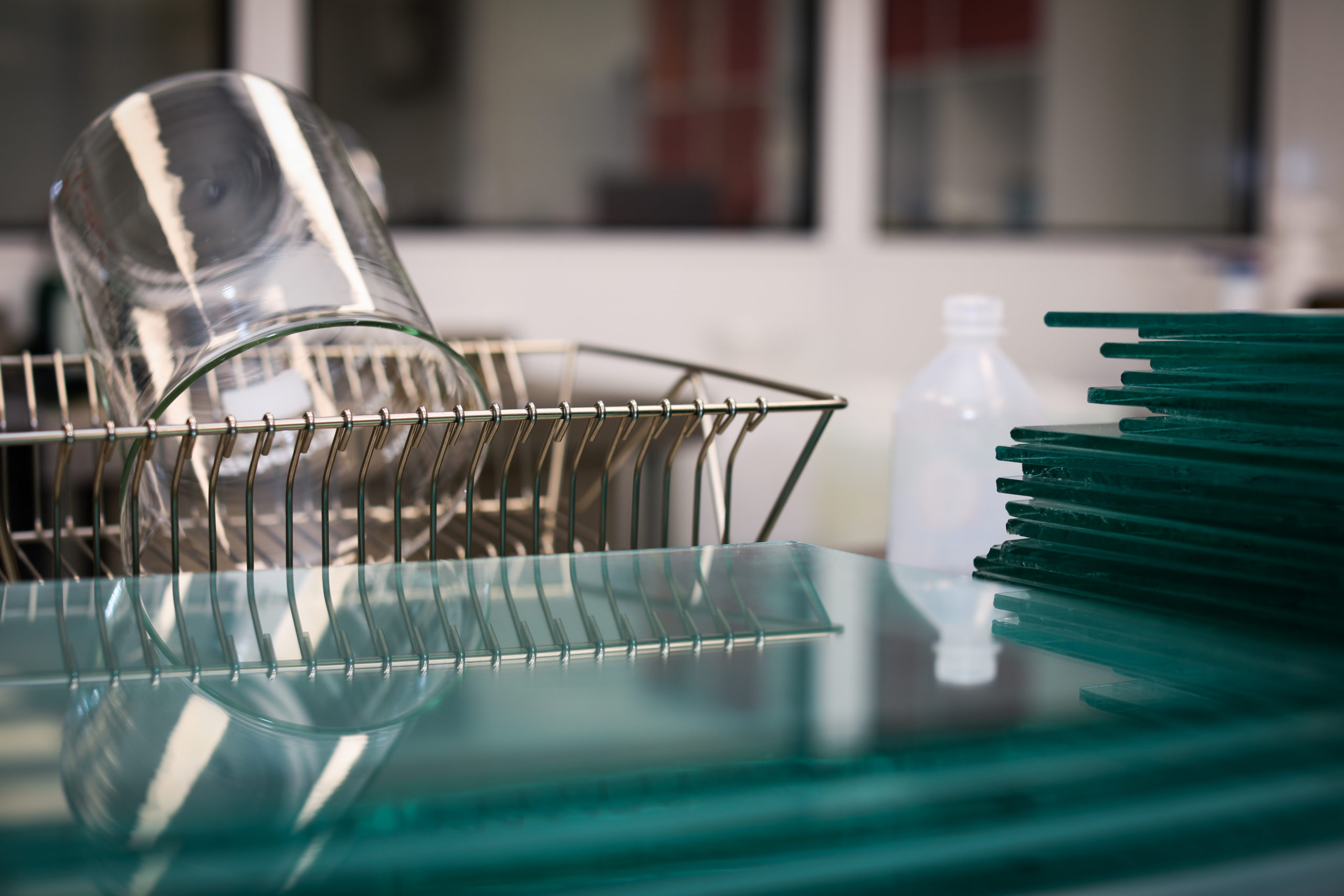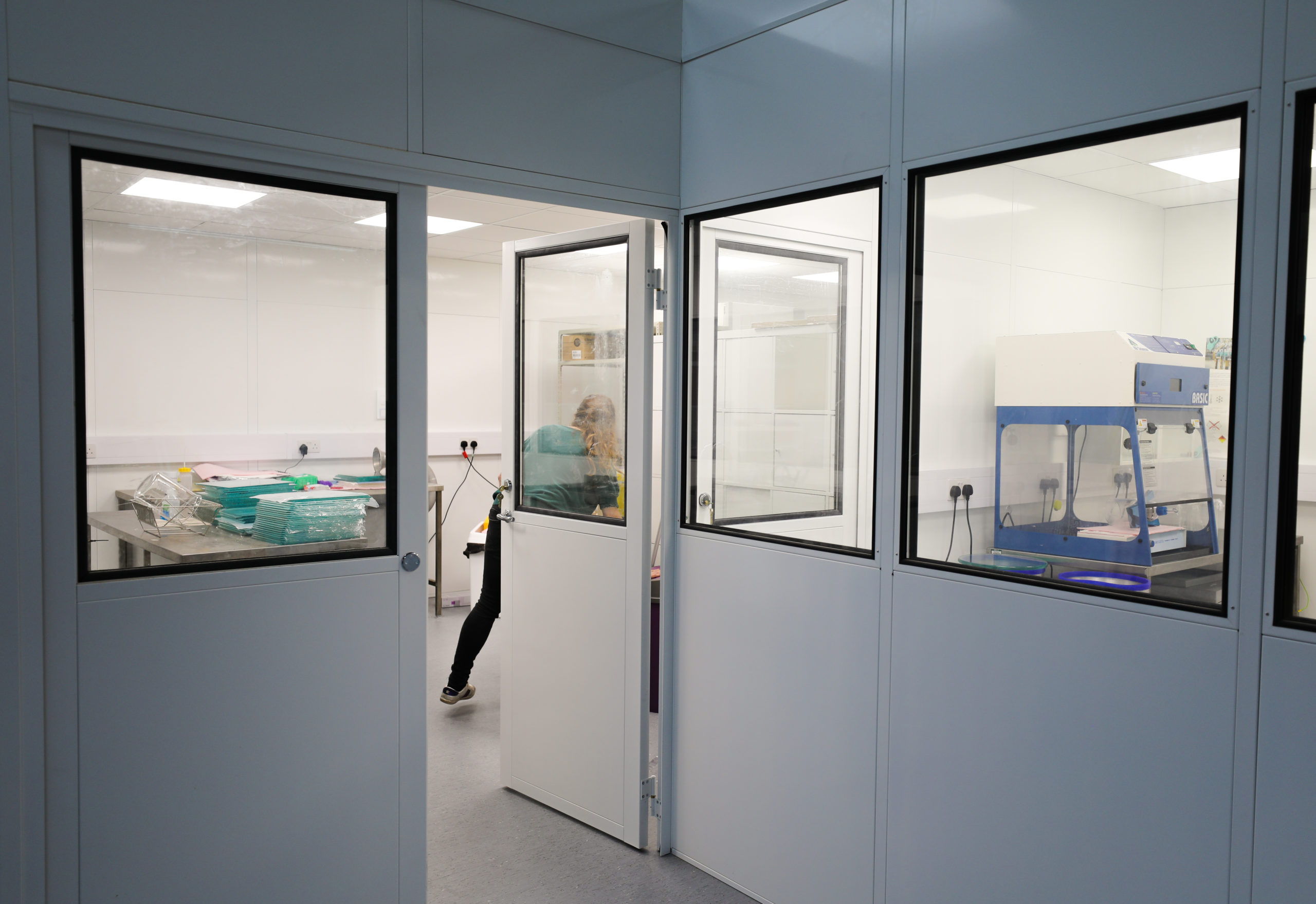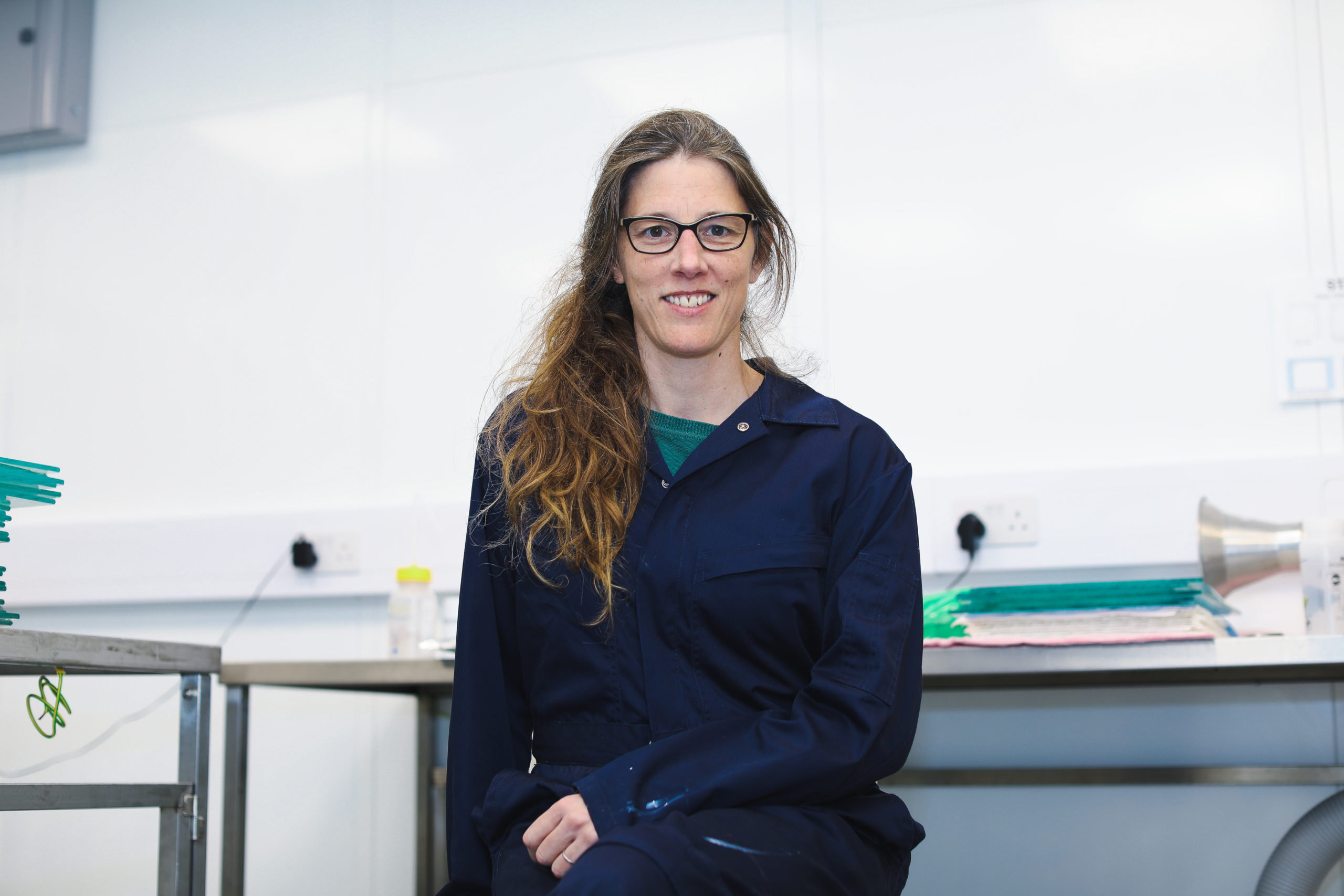CONTACT
Thanks for your interest in Science Creates. So we can get you to the correct team member, please tell us what you are looking for?
In November 2021 GM Scientific, one of Science Creates’ first member companies, was successfully sold to a global leader in radon measuring technologies. Before the sale was finalised, our resident science writer chatted to Maria Dugdale, its founder, to learn about the company’s journey and the highs and lows of setting up a deep tech business.
It’s a typically grey and overcast October day as I’m on the train from Bristol Temple Meads to Yatton. I watch the countryside rush past, heading further out of the city, and become ever more curious. I’m off to visit one of Science Creates’ first deep tech members and a company on the cusp of a successful exit. The sleepy town that I arrive in is a contrast to the glittering, silicon valley-like locations where we imagine deep tech to be.
Crossing the car park to Unit 12, Market Industrial Estate, the sun arrives dressed in a navy blue boiler suit. With long strides and a luminous smile, Maria Dugdale, founder of GM Scientific greets me, radiating warmth and excitement. We secure some coffees, push open the door to her cavernous laboratory and settle in to unravel the company’s story.
At the heart of GM Scientific is a beautifully straightforward technology that has enormous scope. Onto the table, Maria produces several squares of clattering plastic, that look completely normal. But the secret is embedded inside.
“I make a special plastic that’s sensitive to radiation,” explains Maria. “When certain types of radiation hit the material, it leaves a mark that you can see under a microscope. Its primary use case is to measure radon gas, which is really useful for the surveying industry. It’s also used to monitor people who work in radioactive environments, like nuclear power stations, making sure they stay safe and healthy.”
“I guess it started for me,” she reflects, “as it does for lots of scientists. You do a degree, a PhD and then you wonder what to do with your life. I’d worked for a spin-out company during my PhD and joined them after I’d finished, so from quite early on I knew what it was like to work for a small business. I was doing loads of different roles which was a great training process.
“But after a number of years, I felt that I wanted more. I laid my cards on the table for the company, but my aspirations were declined. I believe that if you get a no, you have to go. By that point, I knew the markets for radiation detection, I knew what customers wanted and believed that I could achieve the same outcomes as that company – just in a different and better way. That was it. I decided to go it alone.
“It was in that autumn that I discovered the St Philips incubator. It was exactly what I needed for my new business.”

“I couldn’t have started my business without the Science Creates incubator in St Philips because I was a one-woman band. Having the option to start somewhere that doesn’t break the bank makes an enormous difference and the possibility to start small also made it less intimidating. I looked into renting an industrial unit, but after going to some viewings I couldn’t wrap my head around what to do with a big empty space.
“As part of the incubator, Ashley (Science Creates’ Centre Director) took care of so many of the details for me, like sorting the removal of laboratory waste or figuring out how to manoeuvre a half tonne oven from the back of a lorry and into my lab. Whenever I felt uncertain there was always someone to ask.
“The social element of joining the incubator helped enormously too. I was able to ask other member companies questions and see how everyone else did business, learning and getting inspired along the way. There were so many different routes that a company like mine could take that I wasn’t aware of!
“Also, when you start out on your own, it’s lonely. At St Philips, there was always someone to chat to over a coffee, or a friend to sit and eat lunch with. It sounds small, but it makes all the difference. The community is what I miss most about the incubator. By being there, you feel like you’re part of something much bigger. Out here, it’s just me.”
“After establishing the lab in St Philips, cash flow was a big factor in driving my business forward. I had a brilliant space that I could afford, so I was frantically lining up customers to make money from early on. I think building a business by your bootstraps is a really healthy process to go through. You learn how to work the money you make, and grow with what you can afford each year. Bootstrapping means you’re always thinking of creative ways to do things. You can learn and achieve so much this way.”
“In my second year, another member company at Science Creates recommended looking into student interns, I hired some and slowly GM Scientific started to grow. I had already moved into a bigger lab at St Philips but eventually, we outgrew the incubator. Space had become a limiting factor – we couldn’t produce as much as we needed to meet the demand. It was time to find a new home.”
“How did you feel when you walked into this space after it became yours?” I want to know, taking in the huge space around me. “I saw massive potential, but it was slightly scary. I remember looking around thinking ‘Oh my god, what have I done!’ But then, you just have to crack on with it.
“The first couple of months were challenging, but I had learned everything I needed to know to fly solo through being at the incubator (like how to move a colossal oven). The timing was also tricky, it was just as Covid-19 was declared a pandemic. I had five tonnes of laboratory infrastructure delivered and no one to help build it because of lockdown. Fortunately, the Science Creates team was still at hand. Mark Green (the now-retired Facilities Manager) kindly offered to help in his spare time. We did everything, this whole lab, together,” she exclaims, pointing to the structure behind me.
“You know, we talked about bootstrapping earlier, and this is the perfect example. I believed that if I could build IKEA furniture, I could build a flat-pack lab too. I don’t know how Mark felt about it, but I reflect back on this time and remember how mad it was. It was also massive fun.”

At this point in time, as we sit with our coffees gone cold from captivating conversation, GM Scientific’s sale is in the pipeline. Maria is on the threshold of selling what she has worked so hard to create, and I wonder if that will bring with it a change in mindset?
Pausing, she says, “I think so. The next stage [after GM Scientific’s sale] is going to be proper growth, and fast. With the new owner, we’ll be taking on a bigger chunk of the market and it’s going to be fun. That’s the satisfying bit for me, the building up. It’s going to be a new world, having to build and run a team, but I can’t wait.”
And beyond GM Scientific’s polymeric sensors, there’s a big dream in Maria’s sights. “I see all the amazing, world-changing advances in healthcare and biotech that come out of Science Creates, and I want to follow suit. I have my eyes on space. Protective radiation detection devices already exist for astronauts, and with space tourism such an emerging field, I am very keen to develop and send a technology like mine into space. As a kid, I dreamt of being an astronaut, and maybe this is how I fulfil that ambition.”

Maria is an astonishingly grounded person. Before heading to interview her, I chatted to Ashley, who filled me in on the incredibly hard work she had put in to build her deep tech company.
“You say that Science Creates made it possible for you to start up, but it sounds like your graft and perseverance is what made it a success,” I pose to her.
“I really grafted, it’s true,” Maria replies, “and ultimately that’s the secret. I remember night after night of working, of cleaning glass plates etcetera, thinking ‘Why am I doing this? Why have I chosen something that’s so much hard work?’ I think not being believed in at times really spurred me on, as well as being a woman in a man’s world. I was actually really surprised that female business owners in deep tech are still such a minority.
“But ultimately, I do what I do, and I’ve made it a success because I love it.”
We had delved into the company’s journey and unpicked Maria’s motivations, but there was one final question to ask to complete the picture, “What do you love about it all?” I ask. A smile spreads across Maria’s face as she replies, “You know what, I’ve been asking myself that quite a lot recently, especially as I’m saying goodbye to running a business and becoming an employee again.
“When you work in research, you’re so focused on one thing, but when you’re in business, you have a whole breadth of tasks to complete. Books, numbers, the practical day-to-day, I really enjoy that. Another aspect I love is the freedom to operate. That ability to control where you’re going, where you take your technology and change tack when you want to.
“Fundamentally though, it’s that thought that anything’s possible, you just have to work out how.”
Maria Dugdale sold GM Scientific to Radonova, the world’s leader in Radon measuring technologies, in November 2021. It’s a brilliant sale for Maria and a testament to her innovative technology, business skills and unbounded optimism. You can read all about it in this article.
Though Maria & GM Scientific are no longer a part of the Science Creates Ecosystem, as one of our earliest members she will always be part of our story. We can’t wait to see what’s next.
We may use cookies, web beacons, tracking pixels, and other tracking technologies when you visit our website, please read out privacy policy for more information.

Science Creates St Philips, Albert Road, Bristol, BS2 0XJ
Science Creates Old Market, Midland Road, Bristol, BS2 0NS
Science Creates Ventures LLP “trading as SCVC” (FRN: 933134) is an Appointed Representative of Kin Capital Partners LLP “KCP”, which is authorised and regulated by the Financial Conduct Authority (FRN: 656789).